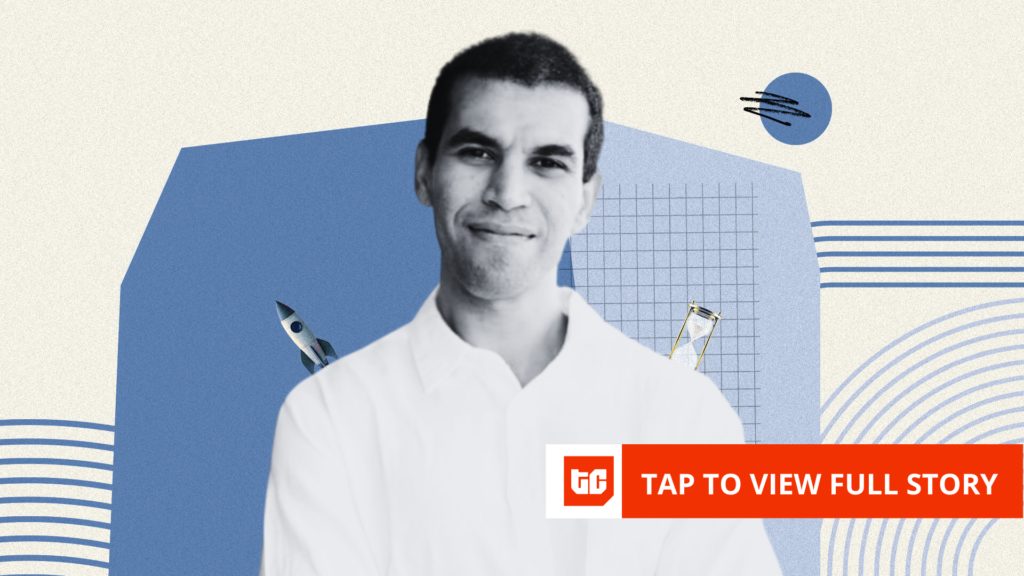After landmark acquisitions like InstaDeep and Expensya, proof of the region’s growing ecosystem maturity, North Africa has drawn increased investor attention over the past two years. Its proximity to Europe’s vast consumer market and access to deep Middle Eastern capital pools only add to the allure.
In 2024, Egypt recorded the fastest growth in equity deal activity in Africa, with 48% more rounds than in 2023. Morocco was the sixth most active African country and one of the few markets outside the top four to raise over $50 million. So far in 2025, Egypt trails only South Africa in funding, having raised $339 million in the first half. Investors have parked their capital in the region’s fintech sector, especially with payments and credit, alongside the proptech and consumer commerce sectors.
Amidst all this activity, firms are racing to hire and deploy capital. Among them is Enza Capital, a pan-African fund that invests between $250,000 and $5 million in startups across multiple sectors. Unlike typical early-stage investors, Enza can deploy up to $20 million in follow-on rounds and take long-term positions in its portfolio companies.
This week, I spoke to Abdelrahman Hassan, the principal at Enza, to understand how Enza thinks about North Africa and why it has tripled its regional portfolio in two years. Although Enza is headquartered in Nairobi, Hassan is based in Cairo, where he leads the firm’s North African strategy and has backed regional startups such as PharmacyMarts, Olive, and Manzil.
“At Enza, our core thesis is backing founders and teams using technology to solve large, meaningful problems across Africa,” he said. ”We back entrepreneurs reimagining how Africans live, work, move, earn, and thrive, often where infrastructure is broken, outdated, or nonexistent.”
His firm focuses on financial services, logistics, healthcare, climate, and human capital. Hassan describes them as sectors where compounding advantages build moats over time.
“Capital is just part of the puzzle. We also support founders with talent, product strategy, narrative, and governance,” Hassan said. “The reality is investing in Africa often means building the conditions for success. We help our companies fill the gaps.
Our conversation covers Enza’s investment strategy in North Africa, how it supports founders, how the firm thinks about exits, how limited partners think about North Africa, and what to avoid when entering the region.
This interview has been edited for length and clarity.
You moved from an impact-first fund (Imaginable Futures) to a return-driven VC (Enza). How did that shift your mindset?
The biggest mindset shift was recognising that the two are not mutually exclusive. A company that can not generate sustainable returns will eventually lose its ability to deliver impact, no matter how strong its mission. Similarly, an impact-first startup will lose its ability to deliver impact at scale unless it finds ways to build a sustainable commercial business.
For example, the neobanks we back serve mostly unbanked users. Affinity Bank in Ghana serves first-time users. Credo democratises education access. Even though we optimise for financial return, impact is baked in.
Revenue is not a dirty word. It does not mean abandoning values. It means building them into a business model that can survive market cycles, so the impact compounds instead of disappearing when the funding tap stops.
We believe the next generation of breakout companies will come from solving the hardest problems – the kind that touch millions of lives. In Africa, those opportunities are everywhere. Technology gives us the reach, but it’s the founders who turn ambition into reality. We’re here to find, back and support those teams in North Africa and across the continent.
Are there any exits or liquidity events that validate Enza’s thesis in North Africa?
We are still early in North Africa; our deeper focus began around 2022. What validates our thesis is not a single headline exit; it’s the steady rise of companies across our portfolio that are building the kind of critical infrastructure which compounds value over decades. Think embedded credit systems across informal supply chains, property transaction platforms in Morocco, HR portals for blue-collar workers in Egypt, and more.
These are businesses scaling with strong unit economics, recurring revenue, and defensible market positions – growth that survives market shocks and keeps compounding. It’s not growth for the next funding round; it’s growth that can withstand the next market crash and still be standing a decade from now.
That said, we’re not blind to the importance of liquidity, of course. The market has already seen meaningful proof points (InstaDeep, Expensya, and Paystack, to name a few), which show that world-class companies can scale from this region and achieve strong exits. We believe we’re part of the cohort of investors and founders who will help create the next wave of those outcomes in North Africa.
And we believe this is key – if we waited until the thesis was fully validated and de-risked, the opportunity for a pioneering venture fund here would already be gone. Our job is to help shape the validation, not to invest once it’s a foregone conclusion.
There was increased VC activity in North Africa last year, with equity deals going up 40%. How have you positioned yourself to capture that momentum?
We have been closely tracking the acceleration in Egypt and, more broadly, the rising momentum across North Africa. The increase in equity deals isn’t just a spike in volume; it’s a signal that the region is entering a new phase of maturity and investors are rebuilding confidence in our economies.
At Enza, we’ve adjusted on several fronts to capture this. We have an office in Cairo and are actively building our presence across Egypt, Morocco and Tunisia. This proximity has helped us build deeper insights, stronger founder relationships, and closer collaboration with other investors in the region. Strategically, we’ve doubled down as well, growing our North Africa portfolio to six companies across Egypt and Morocco.
And we love to see this momentum. After the EGP devaluation, when most funds retreated, we moved in. That’s when the asymmetry is greatest: founders need capital the most, competitors are scarce, and valuations reflect reality instead of hype. Economically, it was the optimal entry point; strategically, we saw an opportunity to be part of a future others have already written off.
So you’re still in build-out mode, trying to capture growth?
Exactly. I spend time in both Morocco and Cairo. Three years ago, we had two North African investments. Now it’s six. We’re now truly Pan-African with a local presence in all four regions.
How do local ecosystem factors—like regulation, talent, and infrastructure—influence how you evaluate deals in North Africa?
They are all important contexts and feed into our final investment decision. For us, it always starts (and ends) with the team. If we back the right founder, they will navigate regulation, recruit talent, and adapt to infrastructure realities better than anyone else.
In fact, some of our best investments were made because of weak infrastructure. Think fintechs like Oliv removing friction and expanding credit access, or AI platforms like Widebot solving for contextualised AI solutions, or Yakeey creating transparency and liquidity in a fragmented property market.
That said, we are seeing encouraging tailwinds. Governments like Egypt’s are moving faster to keep pace with innovation, from the Central Bank enabling eKYC for digital onboarding to the FRA’s sandbox for fintech pilots to meaningful policy shifts supporting electronic payments and broader financial inclusion. We’ve also seen targeted initiatives in real estate digitisation, access to credit, and startup-friendly tax reforms. These moves signal a meaningful willingness to adapt and build fertile ground for innovation and scale.
Because of North Africa’s proximity to Europe and the MENA region, do you see cross-border exits as a major motivation during due diligence?
It’s tempting to anchor on the headline exits (InstaDeep, Expensya) and conclude that Europe or the Gulf is the natural endpoint for North African startups. But we think that’s too narrow a lens.
We’re a pan-African fund, and what excites us more than a cross-border exit is a cross-border footprint. So the bigger question for us is: can this company actually scale outside of its founding country before it gets acquired elsewhere? We’ve seen many success stories of this across the continent. Aza Finance, which started in Kenya and built FX infrastructure across West Africa and North Africa. Or Paystack, which solved for pan-African payments integration before Stripe acquired it. Even InstaDeep, before its acquisition, was building cutting-edge AI from Tunis to Lagos to Kigali.
Is that kind of cross-border scaling realistic? Are you seeing it happen?
It’s absolutely realistic, and we’re already seeing it happen. In our own portfolio, Shara started in Kenya and has expanded to Nigeria. SeamlessHR, born in Nigeria, now serves enterprise clients in South Africa, Ghana and Gambia. Autochek has scaled vehicle financing infrastructure from Nigeria into Uganda, Côte d’Ivoire, Morocco and Ghana in just a few years. Even regionally, Widebot started in Egypt and now serves clients across Oman, Saudi Arabia and the UAE.
And we believe when you do that well, the optionality for exits multiplies: yes, to Europe or the Gulf, but also to African strategic acquirers and regional consolidators who value that footprint. For us, that’s far more exciting than building with only one or two offshore buyers in mind.
What exit paths are most realistic in North Africa?
Enza sees consolidation as one of the most realistic and compelling exit paths in North Africa over the next 3–5 years. Strategic acquirers across fintech, logistics and infrastructure are increasingly looking to buy rather than build. We’re backing companies that sit in those crosshairs, to be acquired by institutions that realise they can’t build fast enough.
There are also exit paths along the road for early investors and teams, in the form of secondaries, which we’ve seen increase in the market over the past 2 years. We are also aware of multiple companies in the region that are also exploring ways to cross-invest.
Beyond typical verticals like fintech, are there unique opportunities in North Africa, like in renewables, agtech, and supply chain?
To date, Enza proudly backs 5 Egyptian companies: Oliv, Widebot, PharmacyMarts, MNZL and Bluworks. And we’ve just completed our investment in Yakeey as our first investment in Morocco.
Yes, but the more interesting question is why they differ.
North Africa isn’t just another geography on the map; it’s a different institutional reality. It sits at the intersection between Europe and the rest of Africa. On paper, it looks modern. Underneath, it’s still deeply opaque. That contradiction is an opportunity.
Unlike other regions, where you’re building from scratch (basic rails, access layers). In North Africa, you’re often dismantling entrenched and overbuilt legacy systems and replacing them with something leaner and more efficient. Here, you’re rewriting the operating system.
So yes, we see emerging sectors – credit for SMEs, real estate as a capital markets layer, asset-backed lending in overlooked demographics, and AI applied to fractured public data. These are the kind of institutional voids that get us excited.
What do founders in North Africa need most from VCs?
We actually think founders in North Africa (and across the continent) don’t need hand-holding; they need leverage.
Of course, capital matters, but it’s not the only constraint. Other parts we’ve seen that equally matter are thought leadership with founders, access to networks, especially to regional and global investors, policy navigation and cross-border market strategy. Founders know what they’re doing, and we see our job in unlocking that growth.
Enza invests in sectors like fintech, logistics, HR, health, and climate tech. Which of those has shown the strongest traction, and why?
That’s a difficult one to answer, as it differs from region to region. The reality is that in venture capital, we must focus on the right teams, the right verticals, in the right places. This has evolved, and continues to evolve, over time.
In fintech, we’re seeing momentum because it’s foundational – it’s the layer every other sector depends on. When you digitise payments or underwrite credit, you unlock movement across the entire economy. HR/workforce platforms are gaining momentum because they sit at the intersection of data and embedded services.
We’re also seeing a clear and accelerating trend: on one side, portfolio companies embedding AI to enhance products, cut costs, automate processes and unlock new revenue lines; on the other, AI-native startups emerging here that are not just building for local markets but competing and winning on a regional stage.
Enza also runs a Founder Partner Program and share carry. How’s that working in North Africa?
The Founder Partner Programme is the first of its kind in Africa, a model where every founder in our portfolio shares in the fund’s carry exactly as the Partners do. It means they’re not just building their companies; they’re co-owners of Enza itself. This creates a deeper, more aligned, and truly long-term partnership. We win together, in every sense.
In North Africa, the programme works exactly as it does across the rest of the continent: every founder we back becomes a Founder Partner, with access to carry across both of our core funds. The response from the market has been overwhelmingly positive. It has resonated with all our founders who want a stake in the success of the ecosystem they’re helping to create.
Your fund does a lot of follow-on funding. Does that apply in North Africa, too?
Yes, follow-ons are core to our thesis, and that absolutely applies in North Africa. We approach it in two ways: from our core fund and from Enza Growth Capital LP.
Our intention is to follow on in every company we back. For us, a follow-on isn’t just doubling down financially; it’s a signal to the market that we have conviction, that we’re willing to compound our commitment alongside the founder. It also allows us to protect and grow our position as these businesses scale, ensuring we stay a meaningful partner through the inflexion points that matter most.
How do you decide when to double down on a portfolio company?
As mentioned, follow-ons are core to our thesis at Enza, and we intend to follow on in every company we back. When we follow on, we look for three signals. First, real traction: not just top-line growth, but improving unit economics, sticky customers or any evidence that the model works without excessive capital burn.
Second, clarity of market leadership – is the company becoming a clear category leader, or does it have a credible path to becoming one? That could mean network effects, proprietary data, a regulatory moat, or something the competition can’t easily replicate. And third, founder momentum: are they still learning faster than the market? Are they adapting to market signals?
When those signals line up, we’ll lean in, because at that point, additional capital isn’t just about extending runway; it’s about accelerating a flywheel that is beginning to turn.
And sometimes the most important decision is the opposite: recognising when more capital won’t change the trajectory. For us, knowing when not to double down is just as critical.
What kind of LPs are interested in North Africa?
This is constantly evolving. From our perspective. Four main types: impact-driven DFIs, emerging market specialists, diaspora and mission-aligned family offices, and GCC investors who see North Africa as a strategic bridge with cultural and operational ties.
Have you raised from MENA-region LPs?
Not yet. Our first two funds didn’t include MENA LPs, but given our presence here, we’re very open to it. The goal is twofold: deepen our partnerships in the region and give more local LPs access to the broader opportunity set we’re building across
We’ve been encouraged by the work we’ve done alongside regional venture funds and co-investors like Algebra Ventures, Disruptech, A15 and DPI, and we see real potential for similar partnerships with institutional LPs, family offices, and sovereign vehicles in the Gulf and North Africa.
You describe yourselves as a founder-partner VC. What does that look like day-to-day?
Capital is just one lever. We focus on governance, policy support, talent, and global investor access. We don’t impose playbooks. We identify pain points and unlock leverage.
How do we get more local capital into African VC?
We need more success stories. When local investors see founders they know build and exit companies, they start to believe it’s possible. If you look at Egypt, the Careem story didn’t end with the acquisition. Alumni went on to found 50+ startups, and they collectively raised over $600 million. That recycling of talent and capital is what builds confidence and draws in local LPs, family offices and institutional investors in the long term.
We’re watching a new generation of founders build real, durable, high-margin, market-defining solutions. That’s why we don’t just see more wins as a possibility, but a certainty. And I think the more visible these wins become, the faster local capital will move from the opportunistic sidelines into more systemic participation.
What common mistakes do global VCs make when entering North Africa, and how does Enza avoid them?
Of course, not all global VCs make mistakes when investing in Africa, but I would say there are three common things we have found. Firstly, overreliance on foreign playbooks. The thinking of “it worked in country X, so it must work in Egypt”, whereas country X will have an entirely different context. We take learnings from other markets, yes, but you can’t shortcut local content.
The second is too much distance and not enough partnership with local investors. We avoid this by building local presence and actively co-investing with regional VCs, and our Founder Partner Programme aligns incentives with every founder we back.
Thirdly, underestimating institutional complexity and how difficult it is to navigate a complicated web of regulations and customer behaviours on the continent. At Enza, we don’t just “dip a toe” into markets. We’ve built local presence in each of the four corners of the continent, and we keep learning with every investment.
Our economies are growing. Our talent pool is strengthening. Our infrastructure is catching up. We believe those who commit now (and stay committed) will be part of shaping the future in Egypt, in North Africa and across the continent.
If you could redesign investment flows into North Africa, what would you change?
If I could redesign investment flows into North Africa, I’d start by mobilising local institutional capital. Pension funds, insurance companies, sovereign vehicles: these pools exist, but they’re under-allocated to venture.
Getting even a small percentage into early- and growth-stage funds would dramatically change the scale and resilience of local ecosystems. We’re starting to see encouraging policy moves.
In Egypt, for example, banks are mandated to direct 25% of their loan portfolios to SMEs, still low by global standards, but improving. The Central Bank cut rates by 3.25% in H1, signalling a more supportive capital environment. We’re heading in the right direction, but the real unlock will come when long-term local capital is deployed into the riskier, high-growth layers of the market.
Mark your calendars! Moonshot by is back in Lagos on October 15–16! Join Africa’s top founders, creatives & tech leaders for 2 days of keynotes, mixers & future-forward ideas. Early bird tickets now 20% off—don’t snooze! moonshot..com











